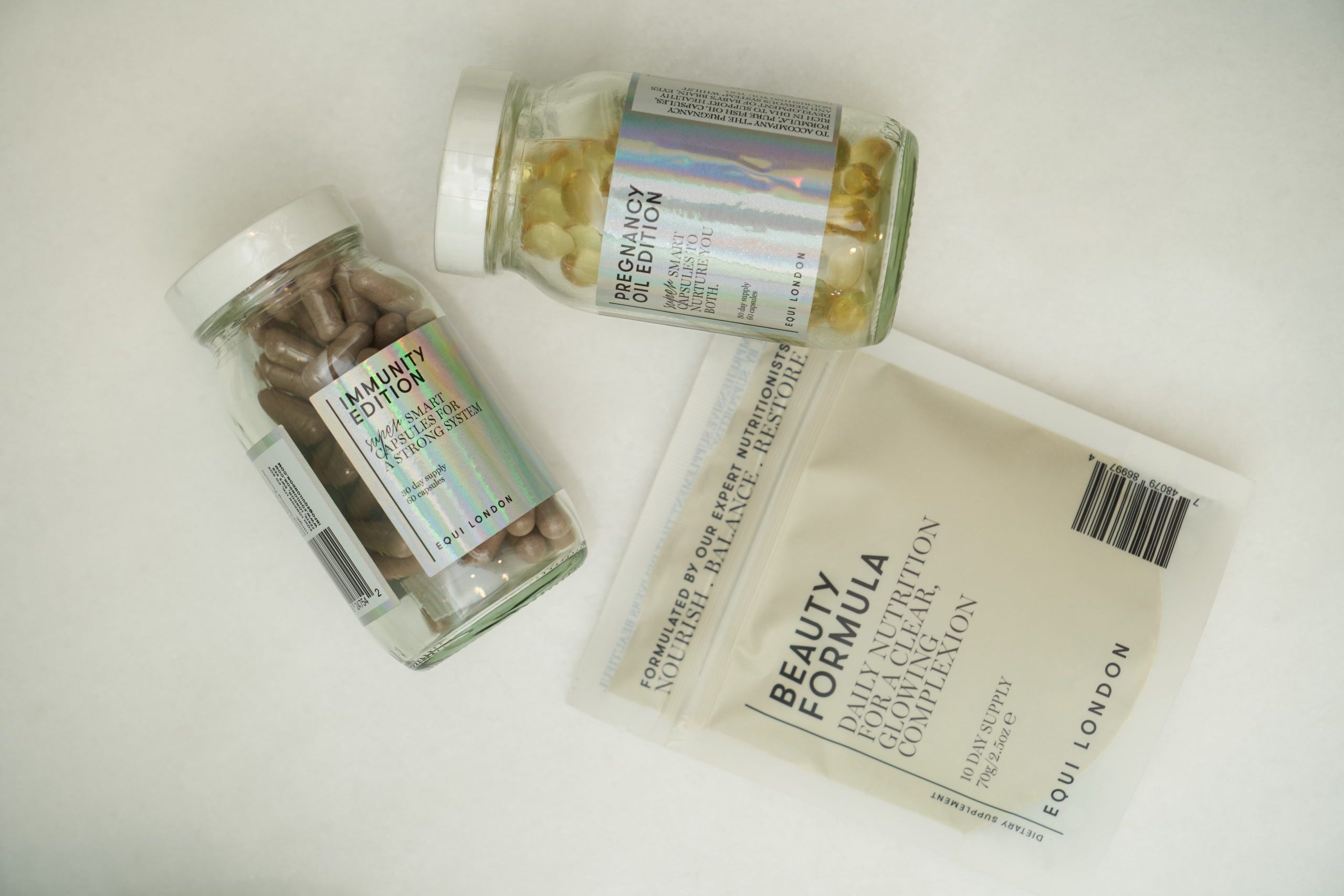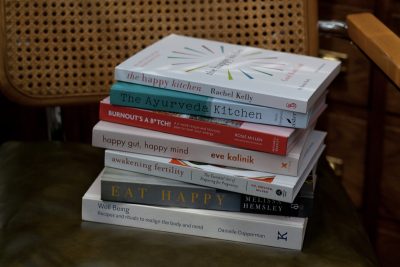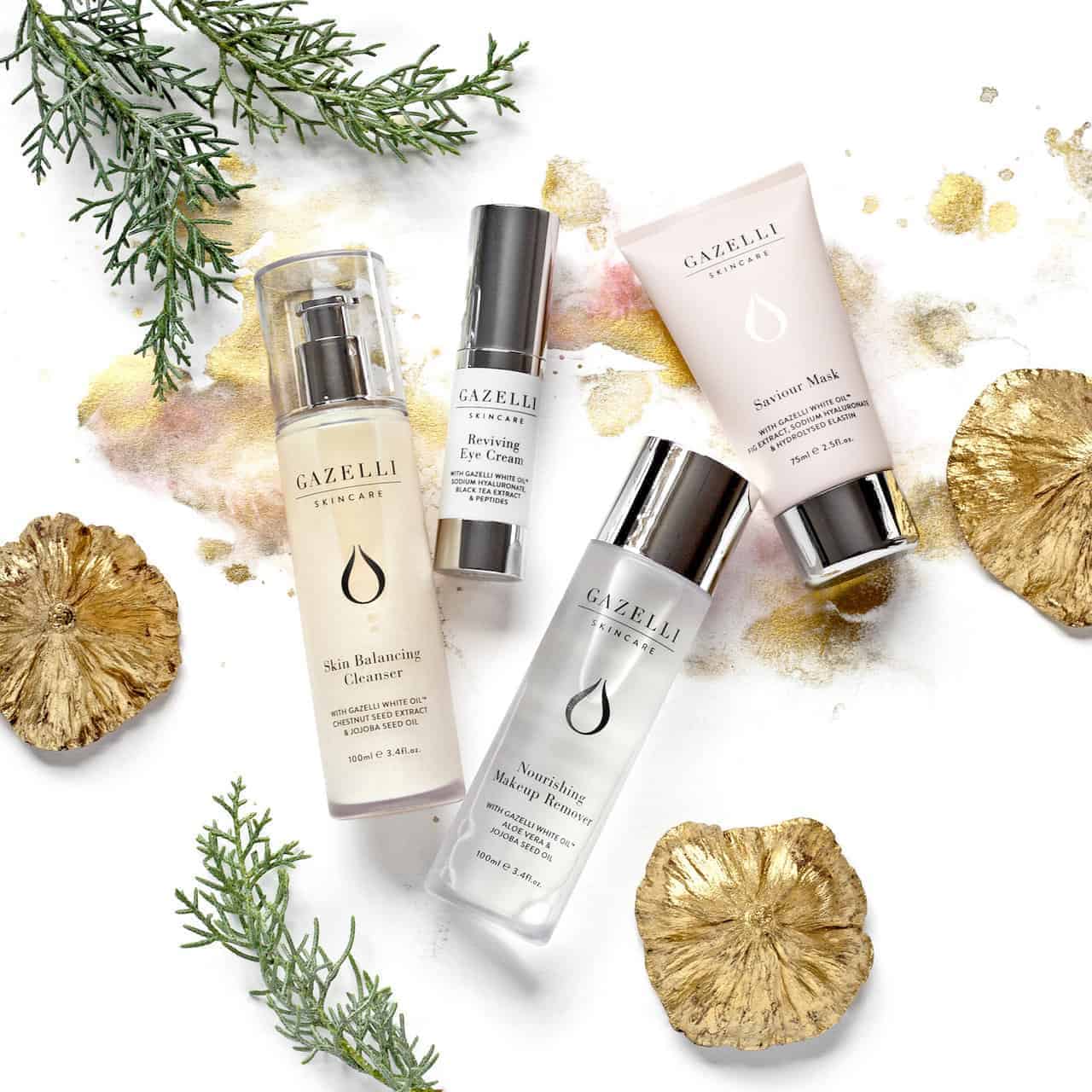
Balancing the body and mind
Nutritional therapist Alice Mackintosh is the co-founder of EQUI London, makers of a pioneering range of nutritional supplements developed just for women, as well as the co-author of The Happy Kitchen: Good Mood Food, subtitled ‘Joyful recipes to keep you calm, boost your energy and help you sleep’. Who better, then, to ask about how best to feed both mind and body during lockdown? At a time when many of us feel our lives are either dull and monotonous or filled with stress and anxiety, food can introduce colour and warmth, provide us with treats and help us to practise self-care. We need to do whatever we can to expand our world – and cooking is one journey we can make.
Read on to find Alice’s recipe for a happier and healthier lockdown experience…
Speaking as a nutritionist, what problems would you say Covid has created?
I feel the current climate has generated an overwhelming sense of hypochondria and anxiety. A lot information is being thrown at us, but we still don’t really know what we’re dealing with. Without becoming obsessive, we need to look after our health as best we can – not only through nutrition, but also through self-care and anything else we can do to manage our anxiety, improve our sleep and help us to stay calm, all of which is vital for the balanced working of our immune system. Our gut health may also be a factor in how we respond to Covid, which means we should all be working to keep our gut as healthy as possible.
When we are at home all day there is a tendency to graze. Have you any advice to help us to break our bad habits?
Snacking is a big problem for me too. But if you are having balanced meals and not skipping them, you shouldn’t need snacks. I’d recommend trying to stick with eating only at mealtimes and forming routines for both meals and exercise, making sure that you go out each day. You can also try to substitute an activity, or a glass of water, until the craving has passed.
Are there any particular foods you would recommend we eat or steer clear of?
Everyone is going to need something different here. For a lot of people, a change in diet is a big deal so my advice is to focus on changing just one thing – for instance, decide you are going cook with more vegetables. Even with just one thing you often see an immediate improvement, which puts you in a better place to make more changes.
You could find a cookbook that suits you (I like Hemsley + Hemsley’s Good + Simple) and focus on trying one new recipe each week. You’ll soon build up a repertoire. I think easy tray bakes or one-pot stews are good for this time of year – something warming and nourishing. I like to make a simple bone broth with lots of fresh herbs and whatever veg I have, plus some red wine and garlic – let it simmer for about 20 minutes and it’s delicious. I would suggest also that you make an effort to eat mindfully, perhaps making mealtimes into a mini-ritual that feels nurturing for both mind and body. And the process of cooking itself – focusing on the smells and flavours and the journey of putting it all together – can be very therapeutic.
Many of us are doing more cooking but it can be quite exhausting to feel you have to be superhuman.
We need to remember we are not supposed to get it right all the time. For me, to eat 80 per cent good and healthy and 20 per cent of what you fancy is sustainable and is much better for you than yo-yoing between an impossible ideal and a sense of failure. My can’t-live-without is chocolate – I have six or eight squares a day and there’s no way I could give it up. That’s my balance – but for someone else it might be having a glass of red wine or eating crusty white bread. Once you stop forbidding yourself something, it stops being such a big deal. Enjoying something that you or someone else has made for you – like a slice of cake – is a form of self-love. We aren’t taking holidays or having our usual treats, so let’s use food to bring colour into our lives.
Are there foods we can eat to boost immunity?
Boosting immunity sounds great and some people benefit from supporting their immune system. But it isn’t always appropriate. Some of us have overactive immune systems that can cause allergies or inflammation, so rather than boosting, we need to think about balancing and supporting. The supplements we have developed at Equi are all about balancing the body – we believe the body is at its most powerful when it is in balance, and that this balance will promote an optimal immune response. Our Equi Immunity Edition has eight balancing ingredients for your gut, your stress levels, your sleep and to manage inflammation as well as basics like vitamin C, D and Zinc. It’s important because in the current stressful conditions our bodies can burn through nutrients at a pace.
Can you tell me more about The Happy Kitchen?
My co-author Rachel Kelly was a client who became a friend. She had suffered mental health problems and found she felt so much better when we were working to improve her diet. So we recognised we needed a book about nutrition for mental health. We translated a lot of the research and evidence into recipes that we organised by categories such as mood, energy, anxiety or sleep rather than by food type. The whole body is interconnected, so your brain needs good nutrition as much as any other part of you.
You can find a range of Equi’s formulas to balance your body for pregnancy or weight management or to optimise immunity, skincare and basic wellbeing in the Gazelli Wellbeing Shop.





